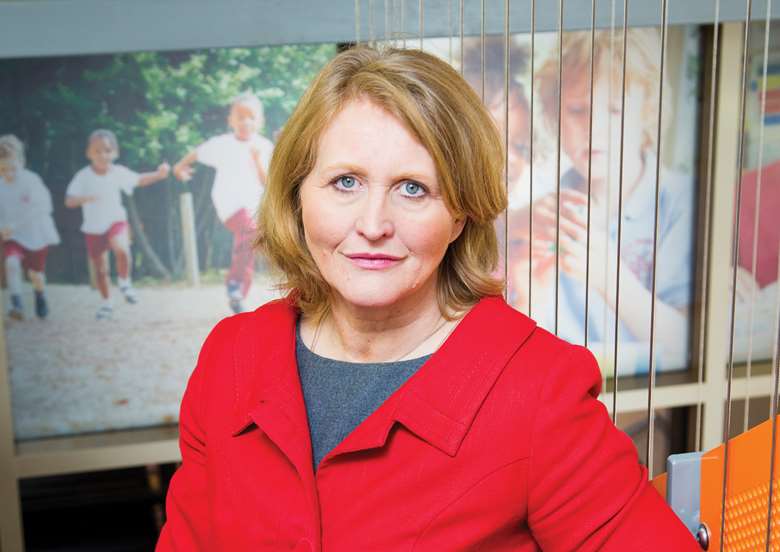Longfield raises concerns over young carer support
Joe Lepper
Wednesday, January 4, 2017
Councils' assessment needs to be improved, with a third of them rejected for support without even being checked, the children's commissioner for England has said.

Based on data from more than 100 local authorities, a study by the commissioner's office found that as many as 130,000 children aged between five and 17 with caring responsibilities may be unknown to local authorities.
Of the 18,000 young carers who were brought to the attention of local authorities in 2015/16, one third were rejected without assessment.
This is despite councils being legally required to assess referrals. Even when assessments are carried out, many councils are unable to offer support as they are "prioritising their statutory requirement to assess referrals over the actual provision of support, which is less clearly defined in law", the commissioner found.
The study reveals that "several voluntary-sector organisations contracted to deliver" young carer services by councils only receive funding "specifically for carrying out assessments".
This is "leaving them to raise further necessary funds on their own" to offer support. One service provider, responding anonymously to the commissioner, called for stronger legislation requiring councils to deliver support.
The provider said: "Without statutory rules on actually delivering support, local authorities are essentially able to ignore young carers' needs which, given the emphasis on assessing them, is completely backward.
"We are essentially carrying out assessments as a tick-box exercise. We are prioritising bureaucracy and not actually considering what we need to best help young carers."
Longfield said: "This report poses significant questions for local authorities about how they identify, assess and support young carers."
She is also concerned that the study found there are 160 young carers under the age of five identified by councils.
"I will be following this up with those local authorities to clarify exactly what it is that these children are doing," she added.
Based on a comparison between data received from councils and the 2011 Census, the commissioner's study also suggests that as many as four out of five young cares are not receiving support.
While the Census showed there were 166,363 young carers aged between five and 17 in England, figures from the 118 councils that supplied detailed data to the commissioner showed just 28,000 in this age group were currently receiving support.
Longfield added: "It is absolutely unacceptable to have so many children with considerable caring responsibilities going under the radar, invisible to the authorities and denied the opportunities available to other children."
This is a problem that is particularly prevalent in Greater London, where only an estimated 17 per cent of young carers in the capital are receiving support. The best performing English region is the South West, where 42 per cent of young people in this situation are being helped by their council.
Matthew Reed, chief executive of The Children's Society, said: "Too many young carers are still hidden from view and cut off from the support they so desperately need.
"It is shocking that even when their situation is brought to the attention of their local authority, many of those who need help are being dismissed without their needs ever being assessed.
"Young carers often show huge courage and resilience, but taking on adult responsibilities to look after sick parents or siblings at such a young age can take a huge toll.
"The pressure of taking on daily tasks like cooking, cleaning and giving medicine can leave them tired and isolated, struggling to socialise or complete school work.
"Local authorities need to do more to make sure that young carers and their families are identified, assessed and supported at the earliest opportunity."
Anna Morris, young carers policy lead at Carers Trust, said: "local authorities need to act urgently to look at entire families to make sure that children's and adults' social services are working together, preventing young carers from slipping through the net.
"Staff need to be trained to identify children in a household who are caring, or intend to care, at the earliest possible point and prevent them from taking on excessive and inappropriate caring roles."




